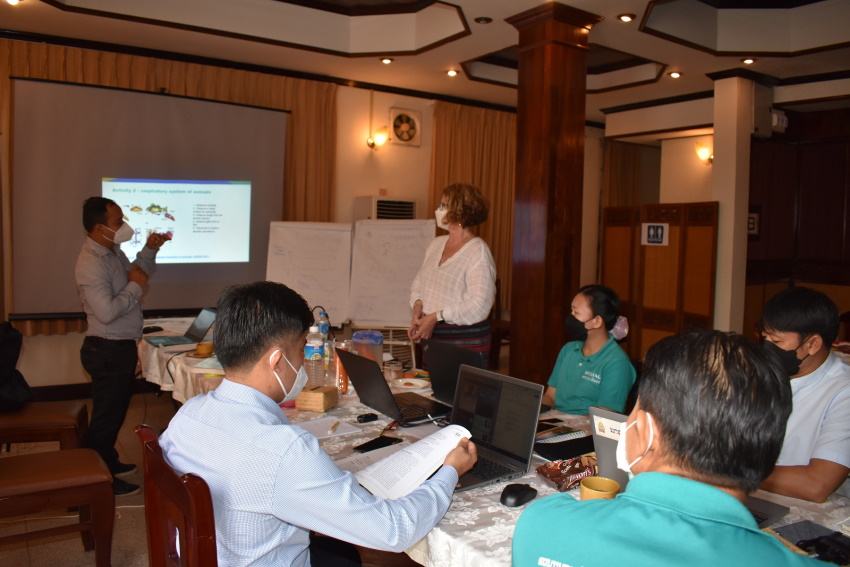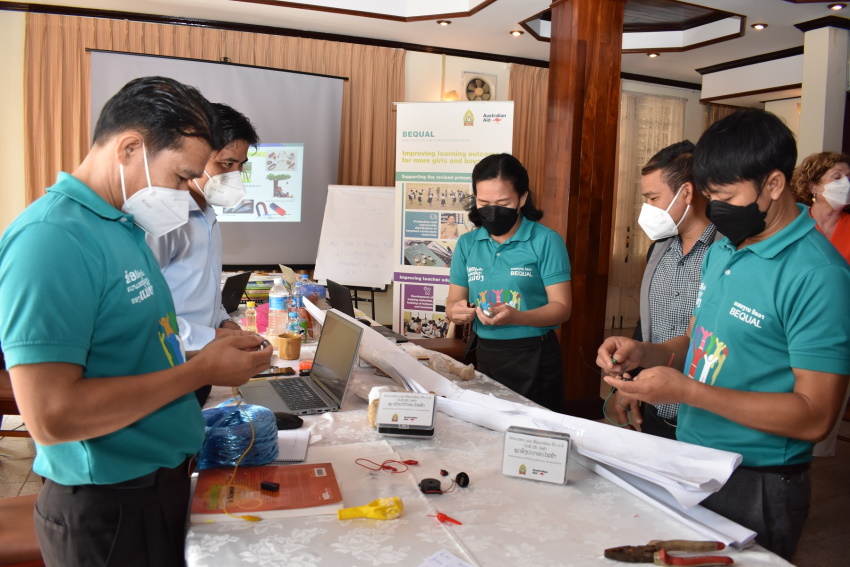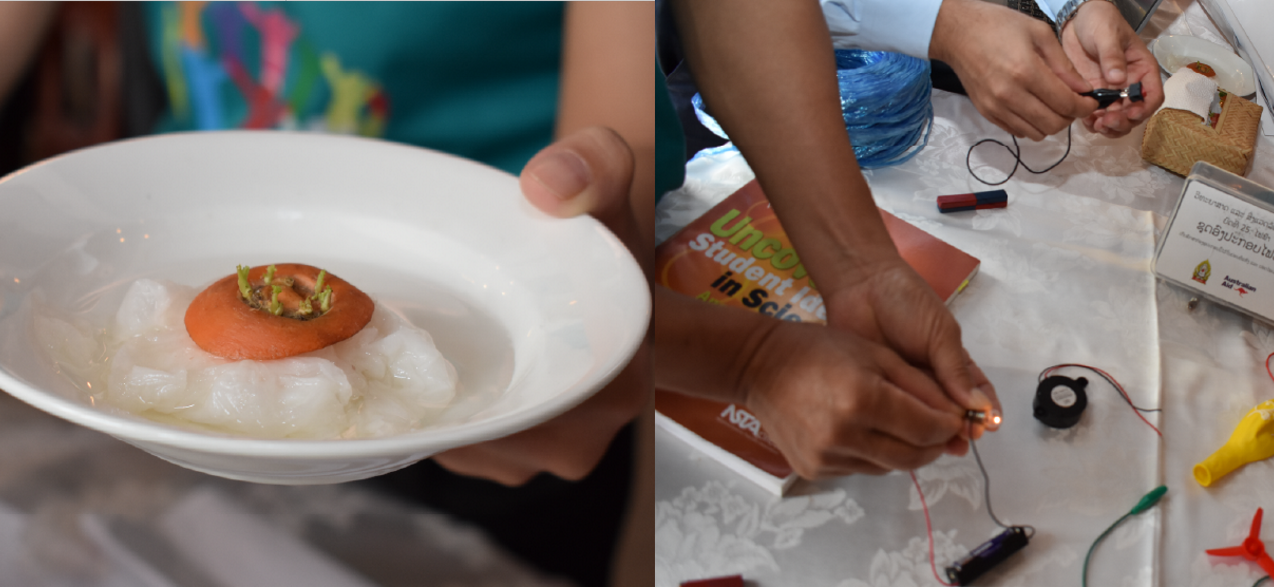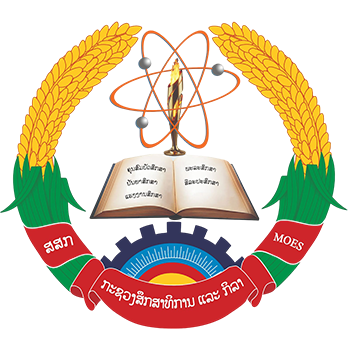
Participants discuss the respiratory system of animals in an easily understandable manner
The new primary Science and Environment curriculum focuses on active learning through experiments that help students relate science to their daily lives and local contexts
The Ministry of Education and Sports (MoES), with support from the Australian Government through its BEQUAL program, held a two-week workshop at the beginning of August for grade 5 Science and Environment curriculum writers. A Science curriculum technical expert from Australia supported capacity-building of the curriculum writers.
The workshop was led by Mrs. Phetsamone Sibounheung, Deputy Director General of the Curriculum Development Center of MoES, and attended by representatives from the Science Section, under the supervision of Research Institute of Educational Science (RIES).
During the first week of the workshop, the curriculum writers reviewed and discussed the topic areas and the major concepts to be developed in the new Grade 5 Science and Environment textbook and teacher guide. They explored and collaboratively planned relevant experiments that would be appropriate for primary school students throughout Lao PDR, and that use basic materials available anywhere. Indeed, the new student-centered pedagogy focuses on experiencing and doing science more than learning content for its own sake. Students will learn by exploring their local environment, the natural and human-made phenomena that impact on their lives and the science ideas underlying them.
“Science and Environment is a useful subject; it includes many important lessons that can be applied by students in their everyday lives. For example, a lesson that students can easily apply at home is plant propagation; they will learn how to grow vegetables without seeds. In the workshop, we have learned from the science expert many interesting new techniques. For example, we did the experiment of placing a carrot top in a tray of water for 3 days then noticed many new sprouts appear which will each become a new carrot plant. This is an easy propagation approach that students can try at home”. said Ajan Banchai Malavong, Acting Head of Science Section.
“We learned that it is important to find ways to explain a difficult lesson content for example, energy, in a simple way, so that students can understand the concept more easily” said Ajan Khamdy Siththisack, staff of Science section. “We also learned how to engage the students in the topics and to keep their attention throughout the lesson” added Ajan Tha Sonephet, acting Head of Science Section.

Representatives from Science Section of RIES practice an experiment on electricity

Two experiments – Propagation without seeds (left) – Making electrical circuits with a kit included in the new teacher guides (right)
Gender Equity and Inclusive Education is also a key component across the new primary curriculum. The writers discussed the integration of “women in science” articles in the textbook and how to plan activities so that all students from all abilities and background would be included.
They also focused a lot on safety, creating lessons that would help the students be aware of the dangers of electricity, water, or contaminated food, for example. Safe practices like handwashing with soap or drinking water only from labelled bottles or that has been previously boiled or filtered will be included.
During the second week of the workshop, the participants applied their learning to the development of several lessons for the new Grade 5 textbook and teacher guide. The writing will continue throughout a series of workshops until February 2023. The new Grade 5 Science and Environment curriculum will be implemented in schools nationwide starting September 2023. The Ministry of Education and Sports of Lao PDR will also receive support from the Australian Government for the printing and distribution of the new books as well as the training of teachers across the country.



 ພາສາລາວ
ພາສາລາວ